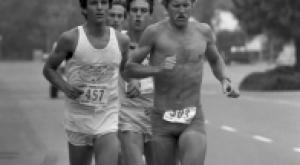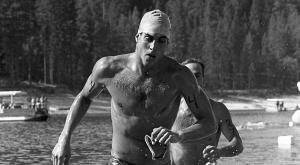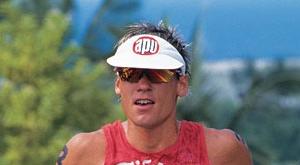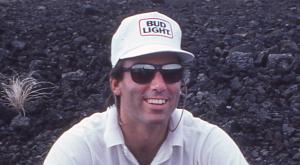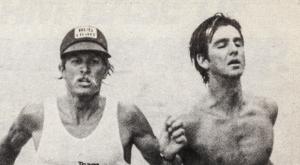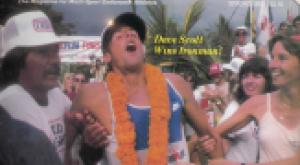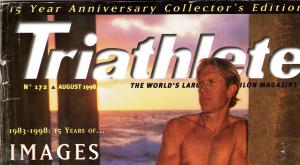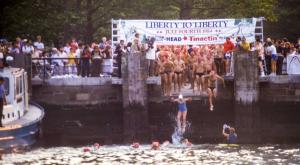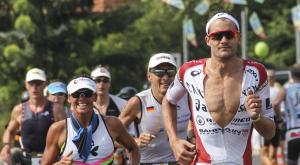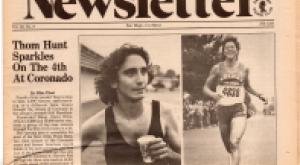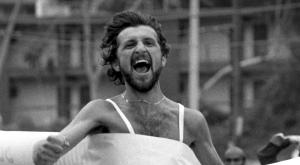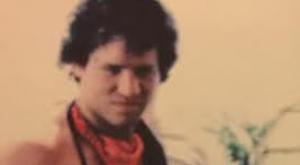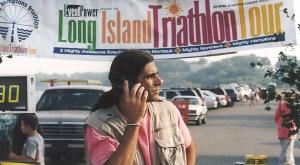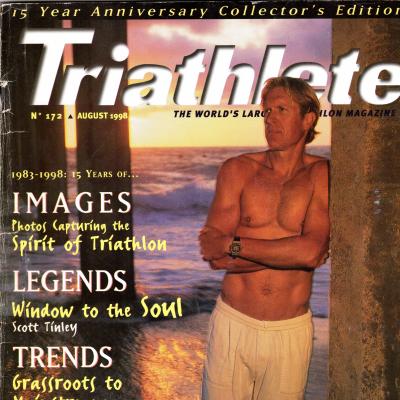A Second Look at the Past, Present and Future of the Sport, circa 1998
In 1998 France won the World Cup and snowboarding made its debut in the Winter Olympics at Nagano, Japan. Microsoft was the most valuable company in the world, the Dow dipped below 500, and President Clinton denied having sex with Monica Lewinsky. Alistair and Jonathon Brownlee were 10 and eight years old, respectively, and Europe had fallen in love with triathlon after three German men had topped the podium in the previous year’s Ironman race in Kona.
It was a pre-911 world, a period that had celebrated the greatest economic growth since well, since forever. But there was a hint of change in the air. In 1998 Osama bin Laden published his fatwa condemning Jews and Crusaders. The disparate filmic themes of Titanic and Saving Private Ryan as box office hits suggested a shift in popular culture. Professional sports became loud while Real Quiet won the Kentucky Derby. The FDA approved Viagra for use in the spring and in the fall, Senator John Glenn returned to space on the shuttle Discovery.
The sport of triathlon was on the cusp of many things in 1998, some good, some not. We’d be going to the Sydney Olympics in the year 2000 but many athletes lamented some kind of lost innocence as if triathlon deserved to stay small and cute, an ageless puppy given a permanent pass to chew on leather shoes. Others saw an expanding market for events, goods, and services. The Triathlon Industrial Complex was in full development mode and as ITU President, Les McDonald had argued quite convincingly for the sport, we were not to be denied our rightful place at the table of international sports.
Few were arguing for triathlon’s history in 1998, not because there wasn’t much of one— 25 amazing years by then— but anything that wasn’t forward-inclined just seemed so…unnecessary. The Ironman brand had finally gained real traction in the Asian and European markets, sponsorships were up, drafting was down, and off-road triathlon had infused new excitement. Still, the sport’s founders had reached middle age and a sad wisdom of compromise had mellowed the voices of dissent that argued such hot-button issues as draft-legal racing, rising entry fees, and the abuse of neon.
It was that spring when Triathlete Magazine, then celebrating its 15th Anniversary, asked me to write something about “The Soul of Triathlon.” An improbable and impossible task, I thought, triathlon may be a sport-with-culture but how could I imbue spirit or anthropomorphic qualifiers into a demographic that increasingly coveted power meters and personal coaches? I was flattered by the nod, however, challenged to see where this could go and late one night dug in with sharpened quill. When the sun came up the next day and it was time to get the kids off to school, I was still writing.
The Magazine wanted to cut it down to 2,000 words and I cringed. “This is a collector’s issue, I argued. You can’t talk about soul on a bumper sticker.” We compromised, the editors did a fantastic job of image selection and layout, and what you see linked here (link) is not just a 15-page salutation of Triathlete Magazine’s first 15 years but one writer’s effort to identify a lot of what we shared. And some of what we didn’t.
Considered in context of the 18 years hence, I got a few things right. Triathletes continue to think differently than other endurance athletes. We are more of the same but more different as well. That feels good. I was more than wrong in other predictions. I thought the iconic events would last forever, the Bakersfield’s and St. Croix’s and Columbia’s standing sentinel to time and tide. I was wrong. Perhaps too many of the independent blocks upon which this sport was built have fallen victim to big brands, small sponsorships, decreasing attendance, and increasing fees. Still, that shimmering crucible of events can thrill and deliver at any size.
And I was thinking that we have become great consumers of our sport but perhaps have left too many minor widgets behind, disposed under that weighted boot of growth. We are very good at convincing ourselves how successful we are… in a Trumpian way. The soul of triathlon is indeed larger. I don’t know if it’s any more or less healthy than 1998. It’s just different. Same as it ever was.
Click on the PDF link below to see and read Scott's original 1998 article in its entirety


